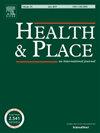Coping with maternity care in rural areas: A holistic approach using Bourdieusian concepts of capital and fields
IF 3.8
2区 医学
Q1 PUBLIC, ENVIRONMENTAL & OCCUPATIONAL HEALTH
引用次数: 0
Abstract
Efficiency-oriented healthcare reforms have led to the closure of obstetric units in several European countries, particularly affecting rural areas that are experiencing depopulation and a decreased birthrate. Using Bourdieu’s field theory, this qualitative study aimed to explore how women’s economic, cultural, and social capital affects their coping at different stages of maternity. The study was based on 20 semi-structured interviews with women in rural Estonian areas where obstetric units have been closed or face imminent closure because of the low number of deliveries. The findings suggest that the utilisation and interplay of these types of capital are shaped by the geographical context, digital opportunities, and the framework of biomedicalization. From pregnancy through childbirth to the postpartum stage, the importance of economic capital increased because the women were obliged to plan their travel to doctors and hospitals more carefully. The women’s cultural and social capital, in the form of information retrieved from the Internet and the availability of family support, was closely associated with their travel decisions. Structural limitations and poor collaboration between healthcare providers and social services hindered capital interplay across fields, especially during the postpartum period. This focus on rural women’s lived experiences of coping with maternity care complements previous quantitative studies that have highlighted the health risks associated with the closure of obstetric units in rural hospitals. Our findings suggest that the effect is not overwhelmingly negative, although we observed greater risk for some individuals and varying capabilities in coping with maternity care challenges.
求助全文
约1分钟内获得全文
求助全文
来源期刊

Health & Place
PUBLIC, ENVIRONMENTAL & OCCUPATIONAL HEALTH-
CiteScore
7.70
自引率
6.20%
发文量
176
审稿时长
29 days
期刊介绍:
he journal is an interdisciplinary journal dedicated to the study of all aspects of health and health care in which place or location matters.
 求助内容:
求助内容: 应助结果提醒方式:
应助结果提醒方式:


